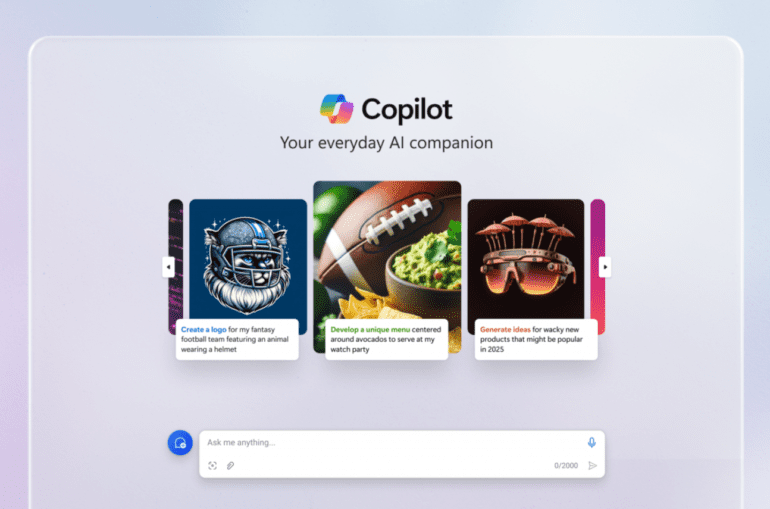TL;DR:
- Microsoft’s Copilot undergoes significant upgrades, aligned with a high-profile Super Bowl advertising campaign.
- Enhancements include a revamped AI model, Deucalion, and a more streamlined interface across web and mobile platforms.
- The design-centric tool, Designer, now offers enhanced editing capabilities, empowering users to manipulate images within chat conversations.
- Copilot Pro subscribers gain exclusive features such as image resizing and regeneration.
- Despite advancements, challenges persist, including past controversies surrounding the misuse of the Designer tool.
- Microsoft reiterates its commitment to democratizing AI innovation through Copilot.
- Performance concerns, particularly among Copilot Pro subscribers, highlight the need for ongoing optimization and user satisfaction efforts.
Main AI News:
Microsoft’s Copilot, renowned for its AI-powered chatbot and assistant capabilities, is undergoing significant enhancements, coinciding with a high-profile Super Bowl LVIII advertising blitz.
Yusuf Mehdi, Chief Marketing Officer at Microsoft, delineated the forthcoming upgrades in a recent post on the official Microsoft blog. “Exactly one year since our debut in AI-powered experiences with Bing Chat, Copilot has evolved remarkably,” Mehdi noted. “With over 5 billion chats and 5 billion images generated thus far, the Copilot journey has been nothing short of transformative. Now, as we consolidate Copilot as the quintessential AI creation experience, we’re introducing further enhancements to elevate user interaction.“
Key upgrades include a revamped AI model dubbed Deucalion, delivering an enhanced Copilot experience across web, Android, and iOS platforms. Mehdi highlighted a refined interface boasting a more streamlined appearance for responses and a carousel of suggested prompts to facilitate user engagement. For instance, users may encounter prompts like, “How would you explain AI to a sixth grader?“
Moreover, Copilot’s design-centric tool, Designer, leveraging generative AI models such as OpenAI’s DALL-E 3, now boasts enhanced editing capabilities. Notably, English-speaking users across various regions can now seamlessly edit images within chat conversations. This includes tasks like colorizing objects, blurring backgrounds, or altering image styles to pixel art. Additionally, Copilot Pro subscribers, enrolled in Microsoft’s $20-per-month premium plan, gain exclusive access to features like image resizing and regeneration between portrait and landscape orientations.
Looking ahead, Mehdi teased the imminent arrival of Designer GPT, promising an immersive canvas within Copilot for users to visualize their ideas more comprehensively. Despite Copilot’s advancements, challenges persist. Earlier controversies surrounding Designer, where malicious users exploited the tool to create illicit content, underscore the ongoing struggle between security measures and misuse. Microsoft asserts its commitment to combating misuse but acknowledges the enduring challenges associated with AI governance.
Mehdi reiterated Microsoft’s overarching mission to democratize AI breakthroughs, asserting Copilot’s role in realizing this vision. However, performance concerns linger, particularly among Copilot Pro subscribers who have encountered prolonged generation times and technical glitches. While the root cause remains speculative, addressing such issues is paramount for Microsoft to ensure Copilot’s seamless functionality and user satisfaction.
Conclusion:
Microsoft’s continued enhancements to Copilot demonstrate its commitment to advancing AI integration in the market. Despite challenges, such as past misuse controversies and performance concerns, Microsoft’s dedication to democratizing AI innovation positions Copilot as a pivotal player in shaping the future of AI-driven experiences. Continued optimization efforts will be crucial for addressing user concerns and maintaining Copilot’s relevance in the evolving landscape of AI technology.

